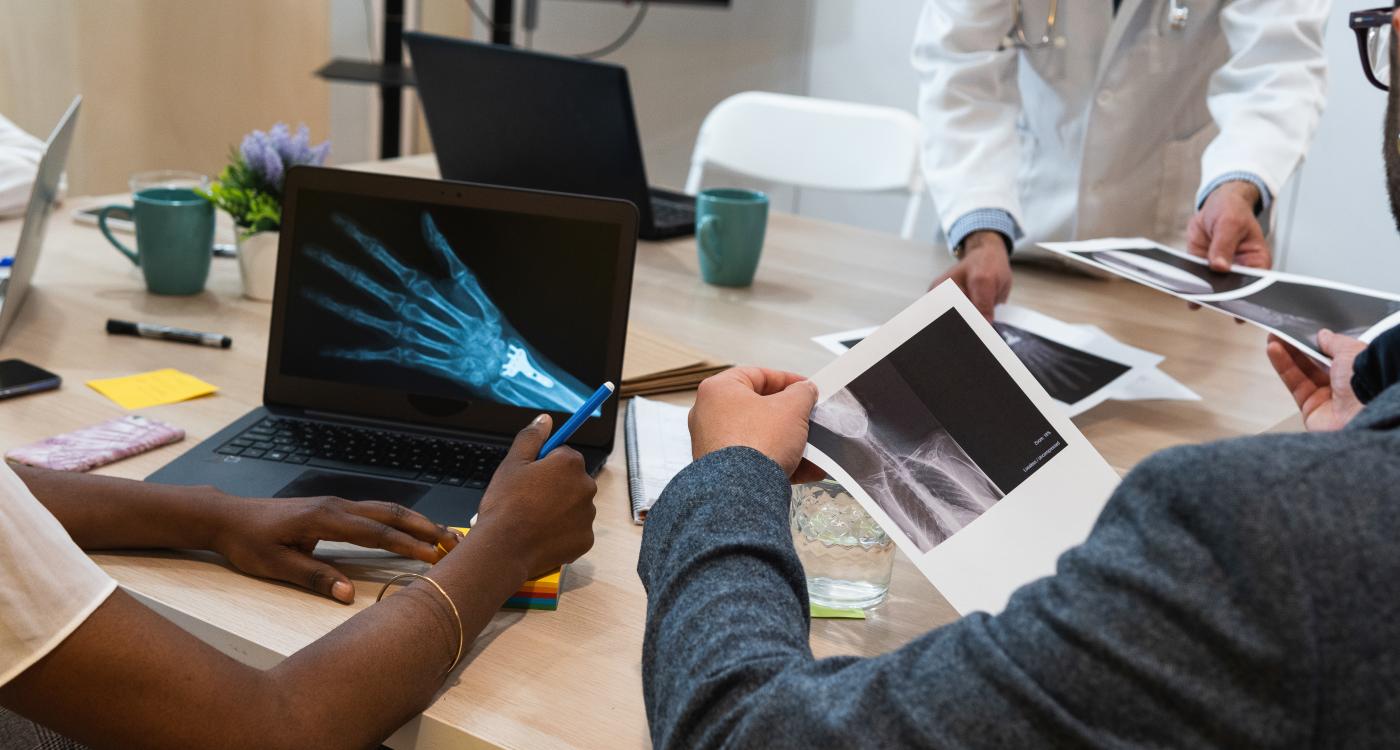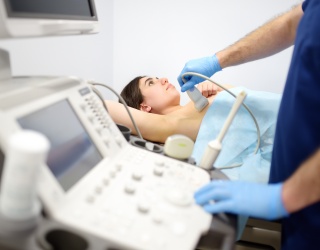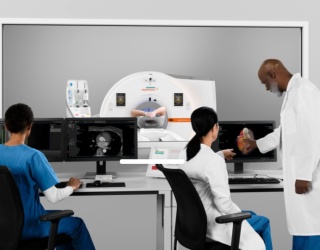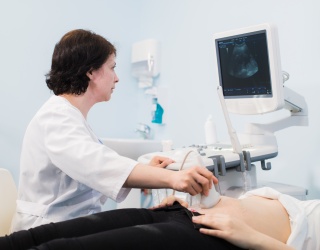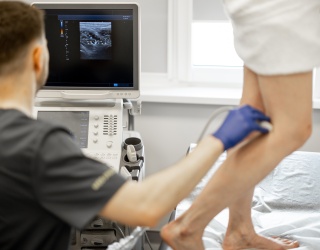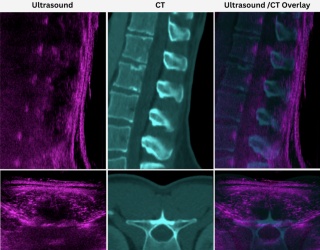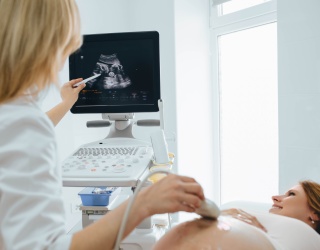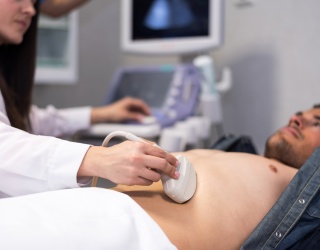Radiation-Free Bone Health Assessment
Echolight will demonstrate its REMS (Radiofrequency Echographic Multi-Spectrometry) technology at the Radiological Society of North America (RSNA) 2025 Congress in Chicago, taking place from November 30 to December 4.
Unlike conventional X-ray-based bone densitometry, REMS uses ultrasound to assess bone density and microarchitecture at axial anatomical sites such as the the spine and femur, entirely without ionizing radiation. The radiation-free nature of the system allows for frequent, longitudinal monitoring of bone health and makes it suitable for pregnant, oncology, and pediatric patients.
The technology automatically filters out artifacts that often compromise other densitometry procedures, resulting in highly reliable diagnostic results. Since no lead shielding or dedicated room is required, REMS can be implemented flexibly in outpatient and bedside settings.
Recent Clinical Studies Validate REMS Technology
Two recently published studies further confirm the clinical validity of REMS.
“This important publication marks a pivotal moment for the clinical adoption of REMS technology worldwide,” said Mike Yuja, Chief Commercial Officer at Echolight USA. “By establishing clear practice parameters, international experts have reinforced the role of REMS as a reliable, accessible, and cost-effective solution for bone health assessment across diverse patient populations.”
According to Yuja, these new practice guidelines will help clinicians integrate REMS into routine osteoporosis management, offering accurate and reproducible results for early diagnosis and ongoing monitoring.
New Insights into Bone Health During Pregnancy
A second study explored the potential of REMS to monitor bone density changes during pregnancy — a group traditionally excluded from diagnostic imaging due to radiation concerns.
“In this prospective study involving 164 healthy pregnant women, REMS was used to measure femoral neck bone mineral density (BMD) once in each trimester,” Yuja explained. “The findings revealed a significant reduction in BMD during the second and third trimesters. Importantly, lack of calcium, vitamin D, and multivitamin supplementation was strongly associated with greater bone loss, and fast bone loss correlated with higher gravidity.”
Researchers noted that REMS opens the possibility to dynamically track bone metabolism and identify risk factors in expectant mothers without exposing them to ionizing radiation.
Portable, Accurate, and Accessible
Echolight’s portable system measures bone quantity and quality simultaneously, providing BMD (g/cm²), T-score, Z-score, and a fragility score that estimates five-year fracture risk through spectral and statistical analysis.
Attendees can visit Echolight Booth #3165 at RSNA 2025 to access the full studies and learn more about the system’s clinical applications.
Source: Echolight

